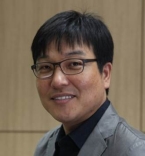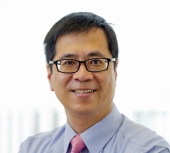KEYNOTE SPEAKERS

Prof. Hyo-Il Jung
Yonsei University, Korea
Hyo-Il Jung is a Professor in the School of Mechanical Engineering at Yonsei University, South Korea. He received his Ph.D. in Physical Biochemistry from the University of Cambridge, United Kingdom. His research focuses on developing advanced bio-analytical systems for human healthcare, particularly microfluidic strategies for the isolation and enrichment of circulating biomarkers such as circulating tumor cells and extracellular vesicles. His group also designs and fabricates innovative electrochemical biosensors to address environmental and public health challenges, including those arising from the COVID-19 pandemic. Professor Jung is actively engaged in bridging academic research with industry. He has contributed to the founding of start-up companies and currently serves as a technical advisor to several in vitro diagnostics firms. Over his career, he has authored more than 150 peer-reviewed journal articles and holds over 90 patents, reflecting both scientific impact and translational potential. He has also taken on significant leadership roles in the scientific community. Professor Jung is the former President of the Korean Society for Extracellular Vesicles (KSEV) and currently serves as President of the Korean Biochip Society (KBS). Through his research, innovation, and leadership, he continues to contribute to the advancement of biochip technologies and precision healthcare.

Prof. TSUI Kwok-Wing Stephen
Chinese University of Hong Kong (CUHK)
TSUI Kwok-Wing Stephen is currently a Professor and the Associate Director (Research) in the School of Biomedical Sciences. He is also the Directors of Hong Kong Bioinformatics Centre and Centre for Microbial Genomics and Proteomics in the Chinese University of Hong Kong (CUHK). In 1995, he received his PhD degree in Biochemistry at CUHK. He was then appointed as an Assistant Professor in the Biochemistry Department in 1997 and promoted to the professorship in 2004. He was also a former member of the International HapMap Consortium and worked on the single nucleotide polymorphisms of human chromosome 3p. During the SARS outbreak in 2003, his team was one of the earliest teams that cracked the complete genome of the SARS-coronavirus and facilitated the emergence of real-time PCR assay for the virus. Totally, he has published more than 280 scientific papers in prestigious international journals, including Nature, Nature Machine Intelligence, New England Journal of Medicine, Lancet, Journal of Allergy and Clinical Immunology, Allergy, Nucleic Acids Research, Genome Biology and PNAS. His h-index is 61 and the citations of his publications are over 26,000. His major research interests are next generation sequencing, bioinformatics and metagenomics in human diseases. Recently, he finished many high-quality genomes of mites and cockroach. Moreover, larger number of novel allergens in these two groups of species is identified and characterized.

